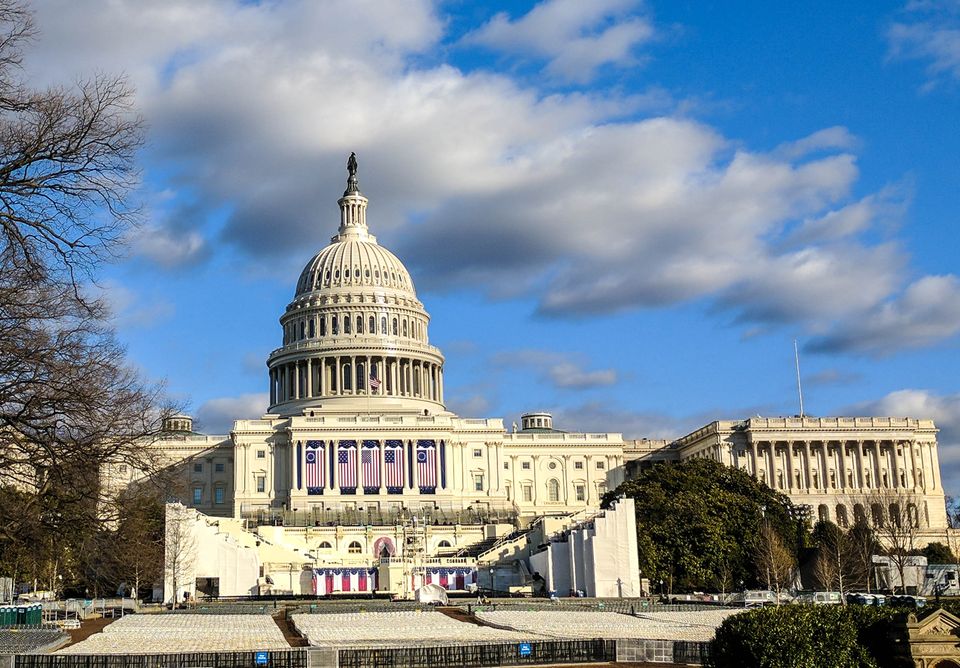As NSA spy law authorization sunsets, lawmakers remain divided

Time is running out on the U.S. spy law that allows the National Security Agency to run its most controversial surveillance programs.
President Donald Trump’s administration reportedly believes that it could legally operate foreign-surveillance programs such as Prism and Upstream until late April, based on the Foreign Intelligence Surveillance Court’s one-year approval of the NSA’s targeting and minimization procedures last April. But Section 702 of the Foreign Intelligence Surveillance Act, which formally authorizes the programs, expires at the count of midnight on New Year’s Eve.
Supporters of Section 702 surveillance say the programs are critical to the U.S. fight against terrorism. Delaying reauthorization would have consequences, says Brian Hale, spokesman for the U.S. Office of Director of National Intelligence.
READ MORE ON FISA SECTION 702
Surveillance bill keeps U.S. search loophole open
Jennifer Granick on spying: ‘The more we collect, the less we know’ (Q&A)
Lawmakers to spar over sunsetting spy law
ACLU, TPI, Consumer Watchdog at odds in privacy policy debate
“A gap in the statutory authority will generate significant uncertainty regarding the future of the program,” he says. “So while the orders would be in effect for a short time after the end of the year, the fact is that we would need to be planning for the end of the program, and that cannot be done in a matter of days.”
Critics of the legislation say private U.S. communications are regularly swept up in the NSA foreign-surveillance programs it authorizes. Law enforcement agencies can then search these “incidentally” recorded communications when conducting investigations unrelated to terrorism. Privacy advocates call this provision a backdoor search loophole.
As the expiration approaches, Congress doesn’t appear to be close to agreement on how to extend the foreign-surveillance programs. Some lawmakers have been pushing for changes designed to protect the privacy of U.S. residents. Some have been pushing to tack reauthorization onto a government spending bill. (Instead, Congress on Thursday passed a short-term extension, until January 19, that will allow for a renewed debate over the law in the new year.)
“A gap in the statutory authority will generate significant uncertainty regarding the future of the program.”—Brian Hale, spokesman, U.S. Office of Director of National Intelligence
During a press conference last week, three Republican and two Democrat lawmakers called on Congress to conduct an extended debate over reauthorization of the law. And others have introduced no fewer than five bills to extend Section 702, three of which have been approved by various congressional committees.
Two of the three committee-approved bills—both called the FISA Amendments Reauthorization Act, with a version in the Senate and a version in the House of Representatives—would largely extend Section 702 surveillance without privacy reforms. The House Intelligence Committee approved its version on December 1, just two days after it was introduced, and the Senate Intelligence Committee approved its version of the bill in a closed session.
There’s been no public debate in the Senate this year about reauthorizing Section 702, and some lawmakers are trying to “short circuit” a much-needed discussion, Sen. Ron Wyden, an Oregon Democrat, said during the press conference last week. The Trump administration has also backed away from promises to provide Congress with an estimate of the number of U.S. communications swept up in the NSA’s foreign-surveillance programs.
“While the government won’t answer the most basic questions, the Congress is forced to legislate in the dark,” Wyden said.
The third bill approved in committee, the USA Liberty Act, attempts to address the backdoor search loophole by requiring law enforcement agencies to get court-ordered warrants to search the NSA’s database when investigating U.S. residents for crimes unrelated to terrorism.
The bill, which passed in the House Judiciary Committee in November on a 27-8 bipartisan vote, would also officially revoke the NSA’s authorization to collect communications about foreign terrorism suspects and the people they talk to. (Collecting the communications of those suspects would remain authorized.)
Under current law, the NSA could collect an email or text message that mentions the name or email address of a foreign terrorism suspect—even if the sender and receiver were not suspected terrorists, and even if they were U.S. residents. In April, the NSA said it suspended this controversial “about” collection because of an apparent violation of FISA Court rules, but the USA Liberty Act would formally make the practice illegal.
The House Judiciary bill doesn’t go as far as some privacy advocates would like—for one, it does little to protect the privacy of foreigners—but many privacy groups prefer it to the two bills passed by the House and Senate intelligence committees.
The FISA Amendments Reauthorization Act would expand the NSA surveillance programs instead of adding new privacy protections, says Neema Singh Guliani, legislative counsel at the American Civil Liberties Union.
An extended debate is needed, she says, because this is the first time that Congress has looked at Section 702 surveillance since former NSA contractor Edward Snowden exposed the programs in 2013.
“If we’ve learned anything over the last decade, it’s that surveillance laws shouldn’t be made in secret,” she says. “It shouldn’t be the result of back-room deals that are hastily drafted; they shouldn’t be rushed to Congress under unnecessary deadlines.”
